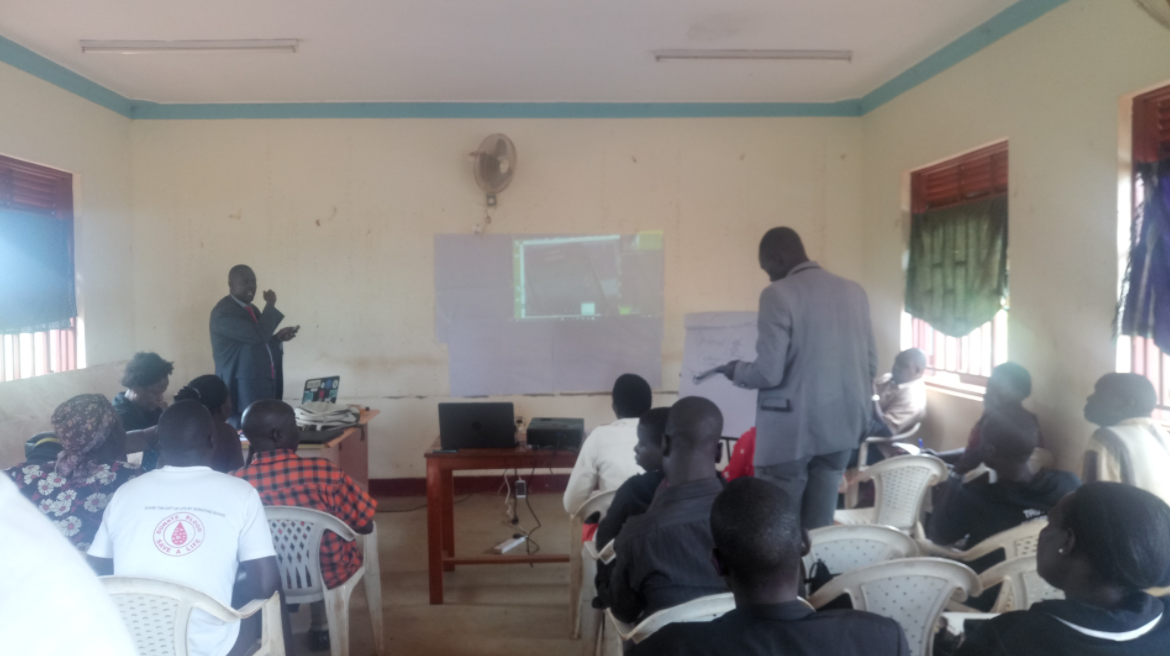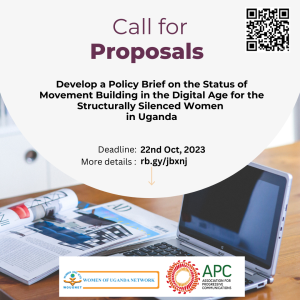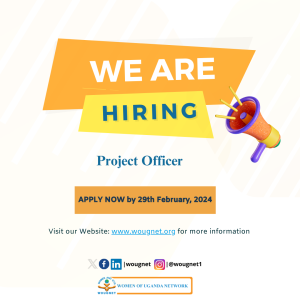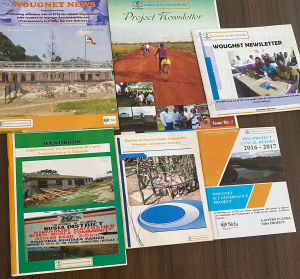In 2016 Women of Uganda Network (WOUGNET) partnered with the Agricultural Innovation System Brokerage Association (AGNISBA) to integrate the use of an SMS platform called “m-Omulimisa” to enable WOUGNET to receive complaints on service delivery from the reporters; the Voluntary Social Accountability Committees (VSACs) and other community members. The complaints received are forwarded to responsible duty bearers for action. From the time this platform was introduced to the VSACs and the leaders in Apac, Kole, and Oyam, a number of issues in the education sector, health, water and sanitation, road and infrastructure development, and different government programs like Operation Wealth Creation (OWC), Northern Uganda Social Action Fund (NUSAF III), restocking among others, have been reported on the system.
Analysis of the system usage shows that the SMS platform has registered over 5,000 service delivery issues in the above sectors since its introduction by WOUGNET to the VSACs, the organization’s community reporters. Most of the complaints are forwarded to leaders and action is taken on some by responsible duty-bearers. On the platform, the VSACs in the project districts have reported irregularities in the procedures used to select beneficiaries under government programs and how inputs under such programs are given out to the selected beneficiaries; absenteeism and late reporting by teachers and some medical personnel to their duty stations; poor access to most community access roads; drug stock out in most public health facilities; disease outbreak in some areas; water source negligence and poor accountability of water collection fee by water source caretakers; shoddy work in construction projects like classrooms, latrines, health center buildings among others.
Besides the increasing number of service delivery issues reported, the SMS platform at the project start encountering resistance from the duty bearers with the view that the WOUGNET project had come to witch-hunt the leaders and expose their weaknesses to the public. There was also fear that the project would empower the local citizen and open their eyes to demand and hold the leaders accountable for their actions hence exposing corruption scandals and shoddy work in most public sectors. Even the citizens, the VSACs who are the prime target under the project never believed in the system and thought the platform would not effectively give them the answers to service delivery gaps in their communities even when reported. In many encounters, VSACs expressed fear that for long they had service delivery challenges in their communities and efforts were made to report such issues to the leaders but the leaders hardly responded to them. For this, they wondered how the platform would motivate and move the leaders to respond and take appropriate actions on service delivery gaps reported to them using the SMS platform.
With the continuous training and engagement with the VSACs and the duty bearers at all levels of service delivery coupled with project activities designed to address similar issues, many have started to appreciate the contribution of the SMS platform in improving service delivery. Duty bearers have started to embrace the system by responding to the issues forwarded to them and on receipt of the complaints they have labored to reach the scene to ascertain the magnitude of the problem before appropriate action is taken. The overwhelming responses by duty bearers on issues reported have encouraged the VSACs and other community members to report more service delivery challenges in their community on the platform and they are now witnessing the contribution of the platform in addressing gaps in the public service sector. Interaction with the community also indicated that the WOUGNET SMS platform is building good working relationships between the leaders who are the duty bearers and citizens who are the right holders with the notion that communications are being made silently and things are seen happening.
During a WOUGNET ICT training conducted in the three project districts of Apac, Kole and Oyam to reinvigorate the knowledge of the VSACs and the duty bearers on the use of m-Omulimisa (www.omulimisa.com/wougnet) for improving service delivery, the Chairperson LC V of Oyam district Hon. Nelson Adea Akar when given the opportunity to address the Oyam district training participants, commended the approaches and the communication tools WOUGNET is using in advocating for improved service delivery in Northern Uganda.
Hon. Adea noted that leaders initially had negative attitudes towards WOUGNET’s intervention with fear that the project had come to fight them and expose their weaknesses to the public thus forcing most leaders to ignore WOUGNET programs and the district and Sub-County leaders deliberately declining to respond to complaints forwarded to them because they had not understood the concept behind WOUGNET’s communication tools.
The Chairperson noted that WOUGNET’s communication tool, the m-Omulimisa is a friendly communication tool and it enables citizens to raise their complaints while their identity is hidden. He added that the system facilitates silent communication while engaging the leaders to take action on the communication made. Hon. Adea testifies that the system greatly helped them in June this year when there was an outbreak of measles in Minakulu Sub-County.
“I want to thank WOUGNET for engineering the platform”. Adea noted. “This platform helped us in June when we had measles outbreak in Minakulu Sub-County”. Hon. Adea explained. “It happens that one of the WOUGNET reporters reported the occurrence on the system and the concern was forwarded to me and the District Health Officer (DHO) through the platform”. “Immediately when I got the concern I instructed the DHO and my Secretary for Health and Education to drive to Minakulu to verify the concern; on reaching Minakulu, the DHO with my Secretary found out that the report was true and immediately with my DHO we contact the Ministry of Health and the Ministry responded without delay by sending their team to the district the following day and the problem was addressed”. “Had it not been because of WOUGNET communication tool, it would have taken the district some time to know about the outbreak and respond to this life-threatening outbreak in the district”. Hon. Adea explained.
Hon. Adea noted that his office received a lot of issues with service delivery forwarded to him using the SMS platform apart from the measles outbreak in Minakulu Sub-County. In particular, he pointed out his earlier concerns about the road from Loro to Oyam district headquarters, which was eventually worked on resulting from the reports sent to the system; he also testified that he got complaints from VSACs of Loro reporting that they had paid money for the sorghum seeds but they were not given the seeds. He noted that all these issues were addressed because WOUGNET, using her communication system made effort to ensure that tax payer’s voices reached the responsible officers.
M-Omulimisa (www.mulimisa.com/wougnet) is a toll-free mobile and web-based platform that enables any target user group for instance the local citizens to exchange information with their leaders in local languages or in English. The platform influences human mediation and text messaging to create a mobile and web-based “Q&A forum” space where the citizens use their phones to send their concerns to the system from which the system administrator forwards the complaints to the responsible leader, and the administrator receives feedback from the leader by making a phone call or physical interaction. To use the platform, a mobile subscriber must register using the keyword KIC. In the registration message, the user types the keyword, the district name, the Sub-County name, and the name of the person registering and sends the text to 8228. The system then sends a confirmation message to the person notifying him/her about his/her registered status. To report a complaint, a mobile subscriber must begin a text message using a specific keyword WOUGNET, writes her/his complaint in the text message, and sends it to a USSD code 8228. The complaints are received on the system and forwarded to responsible duty bearers who must also be added to the list of leaders on the system. This intervention is initiated by WOUGNET to help raise awareness in communities on human rights and to provide better service delivery through duty bearers who have responsibilities to serve citizens’ demands.
Compiled by
Egwel Gilbert
WOUGNET Project Officer
Based at Kubere Information Center – KIC Apac






